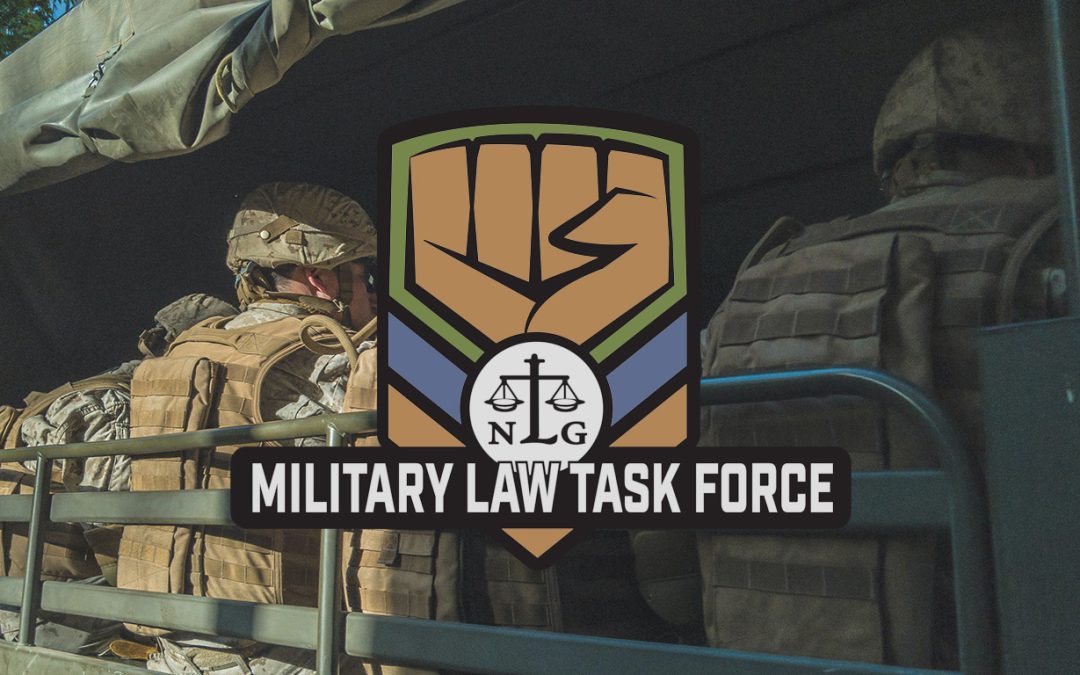By Libby Frank
In 2003, in the run-up to the invasion of Iraq, our son, who was a senior at the time, approached us about the presence of military recruiters in the school. They had always been there but the juxtaposition of the drumbeats of war and the recruiters playing on young people’s patriotism was unsettling. Initially we worked with the school district to implement an opt-out policy to the No Child Left Behind Act. Later I pulled together several anti-war friends and we approached the school with the request that they allow our peace group equal access. We appealed to the principle of fair play and they agreed.
That was 15 years ago. And we are still engaged in counter recruitment.
So what is “counter recruitment?” I once tried to convince an Army recruiter that we were essentially doing him a favor by “pre-screening” potential enlistees. He didn’t buy it.
Most counter recruiters work with high school youth who are attracted to the military for a number of reasons but oftentimes because the military offers a future path for those not interested in college and with few job prospects. We work to make sure they have been adequately informed of the consequences of their decision. We present the realities of war and military life while at the same time offering alternatives. We present the realities of war with media (written and visual), talking with veterans about their experiences and challenging their assumptions about the military. We remind the potential enlistees that, as Dick Cheney said, “The purpose of the military is to fight and win wars”. The Army may have a MOS (Military Occupational Specialty) code of guitar player (they actually do) but how many guitar players do you think they really need? It is difficult to assess our effectiveness. Over the years, we’ve had students come back and thank us for having led them to re-think their decision to enlist. And sometimes we’ve talked to kids that are determined to enlist no matter what. But one thing we never do is chastise the student for their choice or tell them they are stupid for considering the military.
Because we believe it is unfair to take one avenue away without presenting an alternative, we are continually presenting information on alternatives: ways to serve your country without killing, careers that don’t require a college degree, gap year or simply taking a year off to figure out what you want to do. In this regard we are hampered by the generally poor assistance most students receive from their college and career advisor. The emphasis is on college and most schools want to showcase how many students are college bound. In fact in one high school in Chicago the counselors were told that each student needed to apply to three or more colleges. It didn’t matter if they got in; if they wanted to go to college; if they could pay for it. They just needed to apply so that the school administration could report that 90% or so of their graduating class had applied to college. The poor assistance is more reflective of school policy than the efforts of individual counselors.
The counter recruitment movement has suffered through the ups and downs of the anti-war movement. There are much fewer groups engaged in this work than there were at the height of the Iraq war. In the Chicago area, in addition to our group which operates in the northwest suburbs, the Chicago chapter of Veterans for Peace has made demilitarization of Chicago Public Schools a principal focus. There is a group in Elgin which is about 40 miles West of Chicago which visits several high schools on a regular basis and several individuals make visits to high school classrooms on their own. Nationally many groups have disbanded their counter recruitment efforts. The National Network Opposing Militarization of Youth maintains a directory on their website of groups. A survey conducted about a year ago revealed that many groups are no longer active.
This is regrettable especially given our current administration. The government just approved the biggest military budget in years. I’m sure the money allocated for recruitment is substantial. The military is quite aware that serving in the Armed Forces is not a popular career path. They are talking about lowering standards[1] – accepting people with some mental disorders, tattoos, lower test scores, health issues like obesity. This does not bode well for our country.
Given the combined factors of a president whose first response is military aggression, a population that has become acclimated to militarization of society and a faltering anti-war movement, the National Network Opposing Militarization of Youth is planning a counter recruitment summit in Chicago this summer. Chicago was picked because it is ground zero for school militarization with six military academies and 39 public high schools with a JROTC program. Goals of this summit include: increasing the number of counter recruitment activists nationwide; motivating people and equipping them with the tools they need to carry out a successful counter recruitment program; and build a national strategic plan.
Wish us luck and we will keep you posted.
___
Libby Frank is an anti-war and counter recruitment activist living in Chicago. She serves on the steering committees of the National Network Opposing Militarization of Youth and the Military Law Task Force. She is one of the founding members of the Northwest Suburban Peace and Education Project and an associate member of the Chicago chapter of Veterans for Peace.



